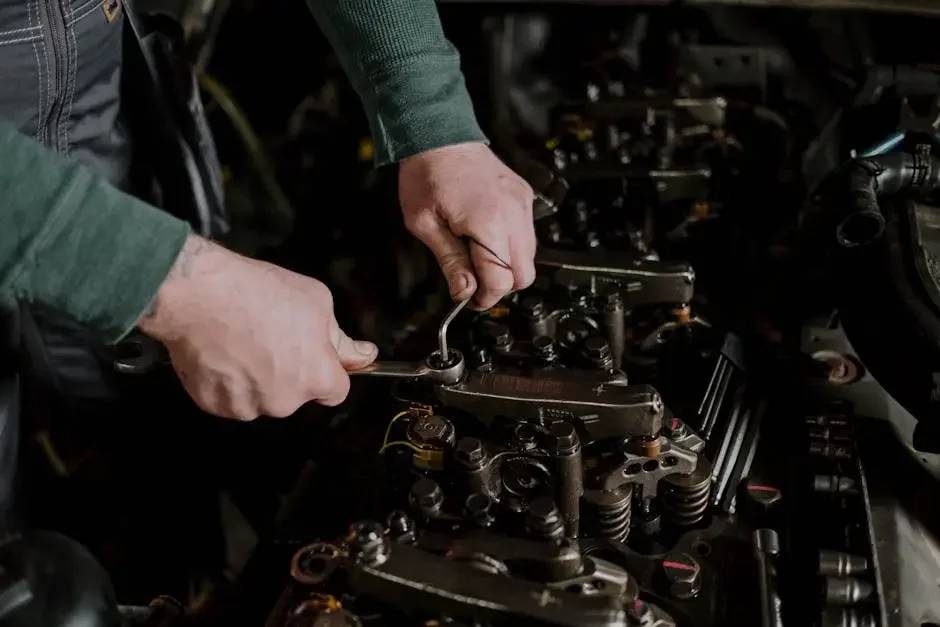The Importance of Precision in Engine Block Maintenance
Maintaining an engine block is crucial for the performance and longevity of any vehicle. Precision in this process not only ensures that your engine runs smoothly but also prevents costly repairs down the line. Let's explore why being precise in engine block maintenance is vital and how to achieve it effectively.
Understanding the Engine Block's Role
The engine block is the heart of your vehicle, housing crucial components that drive performance. Understanding its role lays the groundwork for effective maintenance.
At its core, the engine block contains the cylinders where fuel combustion occurs. This process generates power to propel your vehicle forward. When you think of your vehicle, the engine block might be the last component you consider, yet it is one of the most vital. Without it, your vehicle wouldn’t move an inch! Taking the time to comprehend how each part within this block contributes to overall performance will help you appreciate the importance of precise maintenance.
Moreover, the engine block serves as a framework that holds the engine’s various parts together, including the pistons and crankshaft. These relationships between components illustrate why a tiny mistake in maintenance can lead to extensive problems. Awareness of these intricacies is crucial, as they remind us that maintaining precision in this area goes beyond the block itself—it affects the entire vehicle.
The Consequences of Poor Maintenance
Neglecting engine block maintenance can lead to serious issues, including decreased performance, increased fuel consumption, and even engine failure. Let's discuss what can go wrong.
When the engine block isn’t meticulously maintained, the repercussions can escalate quickly. For starters, minor problems such as cracks or warping can develop into major disasters, resulting in expensive repairs. A small crack may allow coolant to leak, potentially leading to overheating. This is not just a nuisance, but a recipe for complete engine failure if ignored. Imagine being stranded by the roadside due to a neglected engine block—it’s a scenario that no driver wishes to encounter.
In addition to physical damage, poor maintenance can significantly decrease a vehicle's performance. Drivers may notice a decline in acceleration or an increase in engine noise. When these symptoms occur, it's often a sign that something is seriously off within the engine block. Ignoring these signs can lead to inadequate fuel efficiency, causing you to spend more money at the pump—something every driver wants to avoid. Thus, the importance of meticulous engine block maintenance transcends beyond just keeping the car running; it directly impacts your wallet.
Key Factors for Precision in Maintenance
From proper measurements to the right tools, precision in maintenance demands attention to several key factors. Here we will break down what you need for successful upkeep.
One of the most crucial aspects of maintaining your engine block with precision is the use of accurate measuring tools. Tools such as micrometers and dial indicators can provide the measurements necessary to ensure that your engine remains within manufacturer specifications. Using improper tools can lead to frustrating errors, making it essential to invest in quality equipment. A simple miscalculation may not seem significant at first, but it can snowball into larger problems down the line.
Additionally, it’s important to have the correct lubrication for the engine block. Engine oil not only minimizes friction but also helps keep components clean and free from debris. Using the wrong type or viscosity of oil can lead to an inefficient engine that suffers from excessive wear and tear. A well-lubricated engine block runs smoother and more efficiently, which is why precise application and choice of oil are paramount.
Lastly, regular education and staying updated about the latest maintenance practices are important factors. The automotive industry is constantly evolving, and so are the tools and techniques used for engine block maintenance. Engaging in workshops or reading up-to-date literature can empower you to make better choices that promote precision and efficiency in your maintenance habits.
Common Maintenance Practices
Regular practices such as cleaning, inspection, and checking for leaks are essential. We’ll explore these common tasks and their importance in maintaining engine block health.
Cleaning the engine block is one of the most straightforward yet essential maintenance tasks. Over time, oil and debris can accumulate, leading to blocks being clogged. A clean engine block allows for better heat distribution and efficient performance. Routine cleaning not only improves functionality but also helps in identifying any emerging issues before they escalate into costly repairs.
Inspection is another crucial aspect. Regularly inspecting the engine block for signs of wear and tear can save you significant headaches. Look for cracks or any signs of rust—these can be indicative of poor maintenance. Detection at an early stage means that repairs can be made before they lead to more serious problems, ensuring that your engine remains in peak condition.
Lastly, checking for leaks should be part of every maintenance checklist. Even a small leak might seem inconsequential, but it could indicate a bigger issue lurking under the surface. Whether it’s oil, coolant, or other fluids, identifying leaks can help prevent engine block damage and ensure that your vehicle continues to run smoothly.
Utilizing Technology for Better Accuracy
Modern technology has transformed engine block maintenance. Learn how tools like digital calipers and diagnostic software can enhance precision.
The advent of technology has ushered in a new era for automotive maintenance, particularly with precision-focused tasks like engine block upkeep. Digital calipers, for example, provide accurate measurements that manual tools simply can't match. This increase in accuracy transcends routine maintenance, as it ensures every component fits perfectly within the engine block, reducing the chance of future failures. Having these advanced tools at your disposal allows you to maintain a tighter tolerance, leading to superior performance characteristics.
Diagnostic software is equally significant. By plugging your vehicle into a diagnostic tool, you can receive immediate feedback and codes that reveal underlying issues. This instant access to critical data allows for targeted, precise maintenance procedures instead of guesswork. The ability to analyze and understand comprehensive metrics surrounding engine performance is invaluable for ensuring the longevity of your vehicle.
As technology continues to evolve, embracing these tools can further enhance the precision of your engine block maintenance. The integration of such technology not only streamlines common practices but also encourages a proactive approach to vehicle maintenance, allowing you to stay ahead of potential issues before they arise.
Establishing a Maintenance Schedule
Creating a regular maintenance schedule is key to ensuring your engine block receives the attention it needs. We’ll discuss how to set one up effectively.
Establishing a maintenance schedule starts with understanding your vehicle’s specific needs. Every car is unique, and consulting the owner's manual can provide insights into recommended servicing intervals. By doing so, you can create a personalized maintenance plan that ensures your engine block gets the care it requires when it needs it most. This proactive approach not only safeguards the engine's performance but can also extend its overall life.
To set up an effective schedule, consider utilizing tools such as reminders or digital apps that help manage maintenance tasks. Making notes of when you last performed certain checks—like oil changes or coolant flushes—can help keep track of upcoming needs. Consistency is crucial here; by dedicating time at regular intervals, you can smoothly integrate maintenance into your routine.
Finally, remember to remain flexible. While consistency is vital, being open to adjustments based on your vehicle's condition or changing needs is equally important. Regular reflection on your schedule will help ensure that your engine block maintenance remains precise and purposeful, paving the way for a well-functioning vehicle for years to come.
Final Thoughts
In conclusion, precision in engine block maintenance cannot be overstated. By paying attention to the details and following best practices, you can ensure that your engine remains in optimal condition. This not only enhances performance but also extends the life of your vehicle, ultimately saving you time and money.

